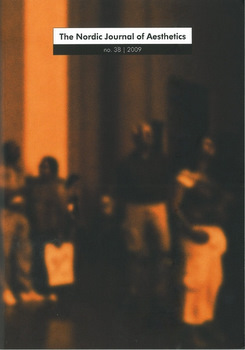Popular Culture. A Reply to Shusterman and Małecki
DOI:
https://doi.org/10.7146/nja.v20i38.2816Abstract
The article is a response to criticism of my two recent articles on Richard Shusterman’s view of popular culture by Shusterman and Małecki. The former maintains that I have misrepresented his view on Europe, the USA and popular culture. But I point out that he talks as if there is no popular culture in Europe due to Europe’s aristocratic traditions, and that the USA is a hotbed of popular culture thanks to its egalitarian traditions, and that Europe can be treated as a country comparable to the USA. He also says that I falsely think he is talking about popular culture while he is really talking about popular art. But I show that it is meaningless to talk about popular art without talking about popular culture and that as a pragmatist Shusterman should have understood that. I show that Małecki grossly misrepresents my article, maintaining that I am against all forms of popular art and against everything Shusterman says about popular art. I show that this is blatantly wrong.Downloads
How to Cite
Snævarr, S. (2009). Popular Culture. A Reply to Shusterman and Małecki. The Nordic Journal of Aesthetics, 20(38). https://doi.org/10.7146/nja.v20i38.2816
Issue
Section
Articles
License
Authors who publish with this journal agree to the following terms:
- Authors retain copyright and grant the journal right of first publication with the work simultaneously licensed under a Creative Commons Attribution License that allows others to share the work with an acknowledgement of the work's authorship and initial publication in this journal.
- Authors are able to enter into separate, additional contractual arrangements for the non-exclusive distribution of the journal's published version of the work (e.g., post it to an institutional repository or publish it in a book), with an acknowledgement of its initial publication in this journal.
- Authors are permitted and encouraged to post their work online (e.g., in institutional repositories or on their website) prior to and during the submission process, as it can lead to productive exchanges, as well as earlier and greater citation of published work (See The Effect of Open Access).




